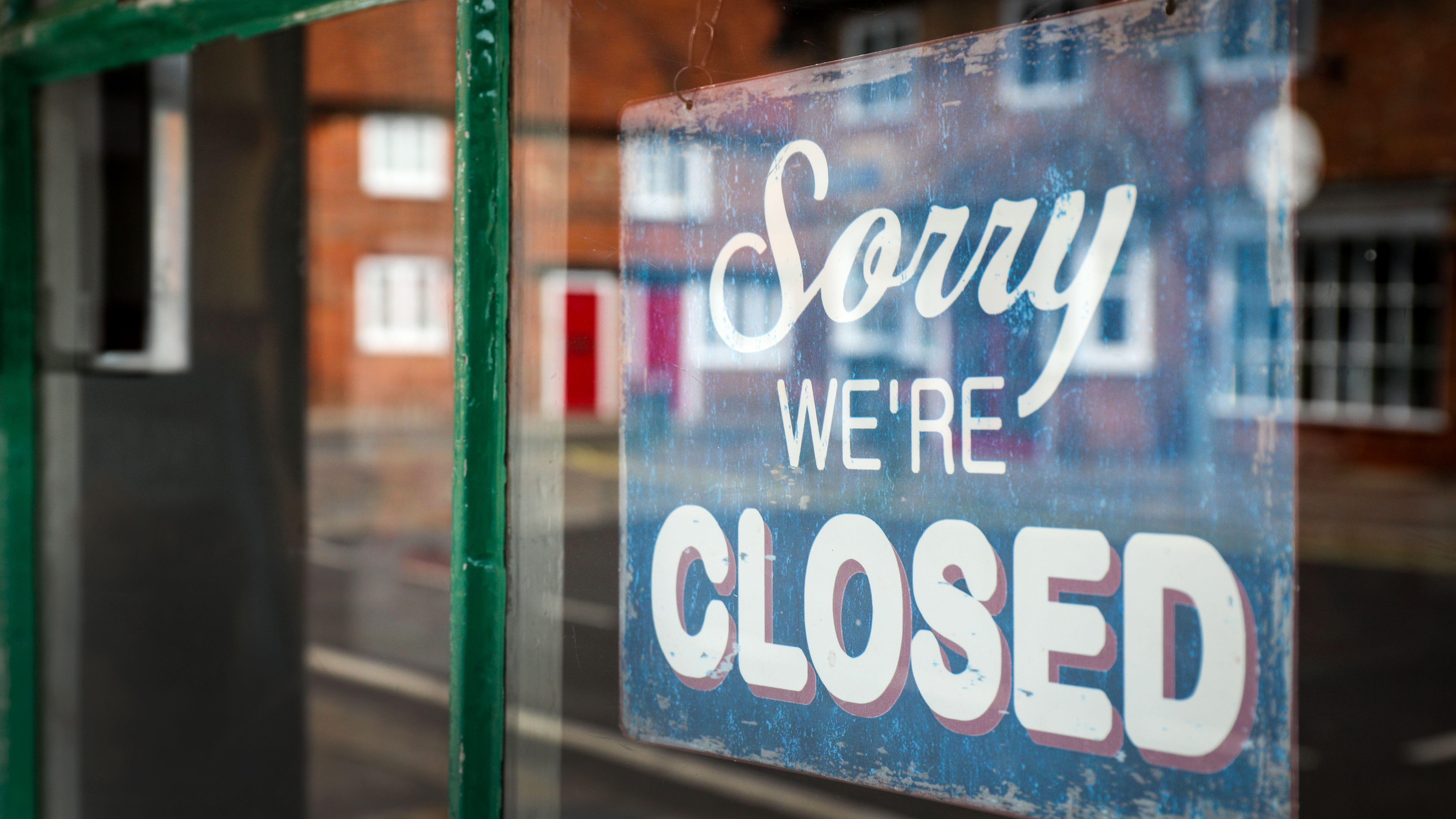Trump packs EPA with chemical, oil industry alumni
A significant number of political appointees who have joined the Environmental Protection Agency (EPA) under President Trump used to work for or have lobbied on behalf of the chemical and fossil fuel industries. The appointments come as the administration has made apparently competing promises about aggressively cutting regulations while also “Making America Healthy Again.” Among the...

A significant number of political appointees who have joined the Environmental Protection Agency (EPA) under President Trump used to work for or have lobbied on behalf of the chemical and fossil fuel industries.
The appointments come as the administration has made apparently competing promises about aggressively cutting regulations while also “Making America Healthy Again.”
Among the figures appointed to the agency is Nancy Beck, who used to work at the American Chemistry Council, a chemical industry trade and lobbying group, before serving in the EPA during Trump's first term. Beck has faced controversy over her handling of chemical safety during her prior tenure in the administration.
Also joining the administration is Lynn Dekleva, who spent more than 30 years at chemical giant DuPont, according to her LinkedIn page. DuPont is well known for, among other things, its relationship to “forever chemicals,” a toxic family of chemicals also known as PFAS that have been linked to several cancers and other health concerns and are the subject of EPA regulations, like many toxic substances.
DuPont’s legacy parent — E.I. du Pont de Nemours — and its spinoff Chemours have manufactured many types of PFAS. The companies settled a lawsuit from water utilities affected by the chemicals last year. Other legal proceedings remain ongoing.
Additional appointments include Chad McIntosh, a former Ford executive, and Alexander Dominguez, who worked for the American Petroleum Institute, a major oil and gas lobbying group. Dominguez has also lobbied on behalf of companies and groups in the biofuels, plastic and oil industries.
Steven Cook, who was a lawyer for chemical and oil refining company LyondellBasell, will also be rejoining the EPA. Like Beck, Dekleva, McIntosh, Dominguez and Cook also held positions at the EPA in Trump's first administration.
The EPA did not directly respond to The Hill’s questions about the appointments or whether officials with industry ties would work on issues that impact their former employers or clients.
Instead, spokeswoman Molly Vaseliou provided a written statement saying that “EPA is putting together a leadership team composed of some of the brightest experts and legal minds of their fields, all of whom will uphold EPA’s mission to protect human health and the environment.”
“During President Trump’s first term, the combined emissions of criteria pollutants and their precursors dropped by 7 percent and the American people saw significant improvement in air quality. Additionally, the Trump EPA cleaned up more toxic sites than its predecessor by fully or partially deleting 82 sites from the Superfund National Priorities List,” she said.
Criteria pollutants refers to a set of six commonly found types of air pollution: smog, soot, carbon monoxide, lead, sulfur dioxide and nitrogen dioxide.
Beck is among the most controversial picks to rejoin the administration. She previously served as deputy and then principal deputy assistant administrator of the EPA’s Office of Chemical Safety and Pollution Prevention in Trump's first term. She later served in the White House's Office of Management and Budget. The Associated Press reported at that time that she was involved in sidelining guidance from the Centers for Disease Control and Prevention related to reopening during the COVID-19 pandemic.
The president nominated her in 2020 to lead the Consumer Product Safety Commission, but that push was derailed when even some Republican senators raised concerns about her record on chemical safety.
Maria Doa, a former EPA official who worked on chemical issues at the agency for several decades, including during the first Trump administration, told The Hill that Beck tried to weaken the science surrounding toxic chemicals.
“When I was at EPA dealing with Nancy Beck, I regularly pushed back against her efforts to ... undermine the science, to change scientific determinations so that chemicals would not be regulated,” said Doa, who is now senior director for chemicals policy at the Environmental Defense Fund.
She particularly noted that Beck pushed back on efforts to reduce exposure to toxic chemicals.
"She would downplay the risk from trichloroethylene, which causes three types of cancer, multiple effects on the body, developmental toxicity," Doa said of Beck.
Doa also recounted a meeting in which she said Beck did not appear to care that deaths related to paint remover methylene chloride were likely being undercounted.
“She said, ‘Well, what is that, like 1 percent? What's the issue?' ... which is just shocking, because parents lost children, and children lost a father or mother so there were a number of deaths,” Doa recalled.
The EPA did not provide a comment on the specifics of Doa’s statements. Instead, a spokesperson reiterated the same statement provided by Vaseliou.
Other Trump appointees to the agency also held lobbying positions.
Official Aaron Szabo lobbied on behalf of the sterilization industry on issues related to its use of the toxic chemical ethylene oxide and DuPont successor Chemours on issues related to forever chemicals.
Szabo additionally lobbied for the American Chemistry Council, a number of oil and pipeline companies and electric utilities Duke, Exelon and NextEra.
Jessica Kramer lobbied on behalf of various water utility trade organizations, as well as Duke Energy, Talos Energy and LG Chem.
Justin Schwab has provided legal services to utility Southern Co.
Kramer and Schwab also served at the agency during Trump's first term, while Szabo worked in the White House.
E&E News first reported that these officials would be rejoining the administration. The Hill has verified using the agency’s employee database that they are working at EPA.
Matthew Tejada, a former career official who worked in the EPA’s Office for Environmental Justice and External Civil Rights, noted that the involvement of officials with ties to industry is not unique to Trump's administrations.
"It's kind of the rhythm of our government that many of us have become used to — that when a conservative administration comes in, they bring in a coterie of polluting industry representation," said Tejada, who is now senior vice president for environmental health at the Natural Resources Defense Council.
He noted that it’s not clear whether any given individual will necessarily feel beholden to their prior employers.
“Are these folks who maybe have differences of philosophy with us, but we can try to find areas of common ground where we can positively advance environmental health protections … or are these folks who are just hell bent on eliminating any resistance from the executive branch of the government to the whims of our president?” he said. “That is what we have to assess right now.”
Trump has pledged to roll back environmental regulations and bolster the oil and gas industry while in office, and made some moves to do so in his initial slate of executive actions.
But while Trump and his team have supported such rollbacks and appointed officials who worked in the chemical and fossil fuel industries to the EPA, he has also repeatedly said that he supports clean air and clean water. Trump has also adopted Robert F. Kennedy Jr.’s “Make America Healthy Again” agenda.
Kennedy, Trump's pick to lead the Department of Health and Human Services (HHS), has expressed interest in removing toxic chemicals from the environment and limiting corporate influence on the federal government.
While he appears to be close with President Trump, Kennedy won’t have any direct say over the EPA’s actions if he’s confirmed as HHS secretary.
Nevertheless, Doa sees a "hypocrisy" in the administration claiming to want a healthier America while putting industry-affiliated people in top EPA positions.
"There's a hypocrisy there if you put people in place who are going to approve chemicals to go on the market that are risky … or who are going to, when they assess chemicals that have long been on the market, downplay their harms, their risks, not regulate them,” she said.













![From Gas Station to Google with Self-Taught Cloud Engineer Rishab Kumar [Podcast #158]](https://cdn.hashnode.com/res/hashnode/image/upload/v1738339892695/6b303b0a-c99c-4074-b4bd-104f98252c0c.png?#)
































































